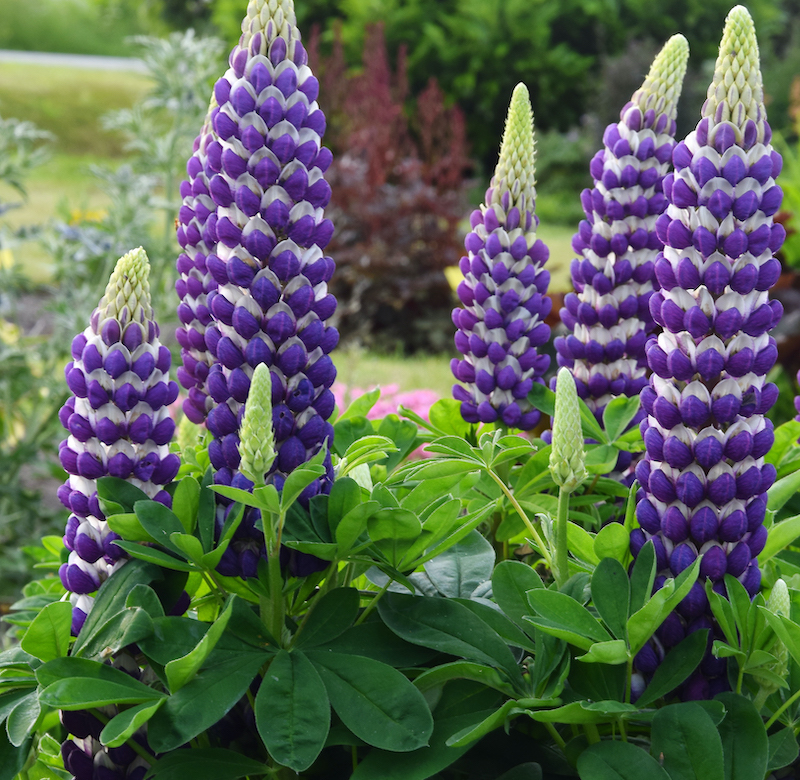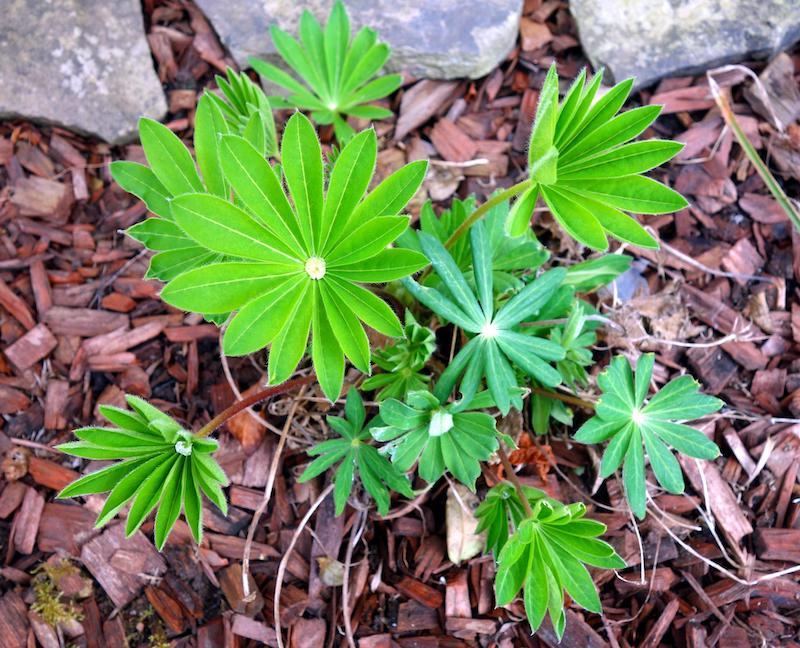Ornamental Lupines are part of the legume family and can take Nitrogen from the air and convert it into Nitrogen nodules in the ground. This special ability makes it easy to understand why Lupine needs very little, if any, supplemental fertilizing. Lupines can extract all the nutrients they need from average soil types to support vigorous growth and blooming.
Mature Lupines may need feeding early in the spring with a fertilizer for acid-loving plants. Newly planted Lupines rarely need fertilizing at the time of planting. Overfeeding Lupines with fertilizers high in Nitrogen will encourage lush foliage growth, which is readily attacked by aphids and other sap suckers.

How to Fertilize Lupines
The perfect soil pH for Lupines is slightly acidic, between 5.0 - 6.5. More alkaline soil will need amending with sulfur or regular applications of fertilizer formulated for acid-loving plants. The soil texture can be anything from heavy clay to sand, but the drainage needs to be ample so that the roots are never sitting in water at any time of the year.
A simple pH test will let you know if any amending is needed. Soils in the neutral range will be suitable with the right fertilizing routine. Garden soils above 7.5 on the pH scale may prove too challenging to grow this normally low-maintenance perennial.
Best Time To Fertilize Lupine
Spring, as the first shoots emerge, is the time to fertilize Lupine. Lupine will benefit from a fertilizer higher in Phosphorus and Potassium than Nitrogen to help the flowers bloom strong and steady. A granular, slow-release formula is best to provide nutrition all growing season.

Best Fertilizer For Lupine
Fertilizers formulated for acid-loving plants or blooming shrubs are best for Lupines. The lower amounts of Nitrogen in Tomato and Rose fertilizers are perfect. Look for formulations with an NPK ratio of 2-6-4. Organic brands such as Dr. Earth or Espoma make products rated for organic production by the OMRI, Organic Materials Research Institute.
Lupine Fertilizing Tips
- Lupines are legume plants and produce Nitrogen from the air.
- A low Nitrogen fertilizer like a Tomato or Rose food will promote heavier blooming.
- Apply fertilizer once in the spring as the new growth emerges.
- Lupines will not grow well in alkaline soil.
Warnings
-Always wear protective gloves and a face mask when handling chemical fertilizers.
-Closely follow all directions and storage guidelines that are on the fertilizer label.
 |
Author Robbin Small - Published 8-24-2022 |
